Save £100s Each Year With Home Solar Energy
GOV.UK
£10,000 in Free Grants to Install Solar in Your Home
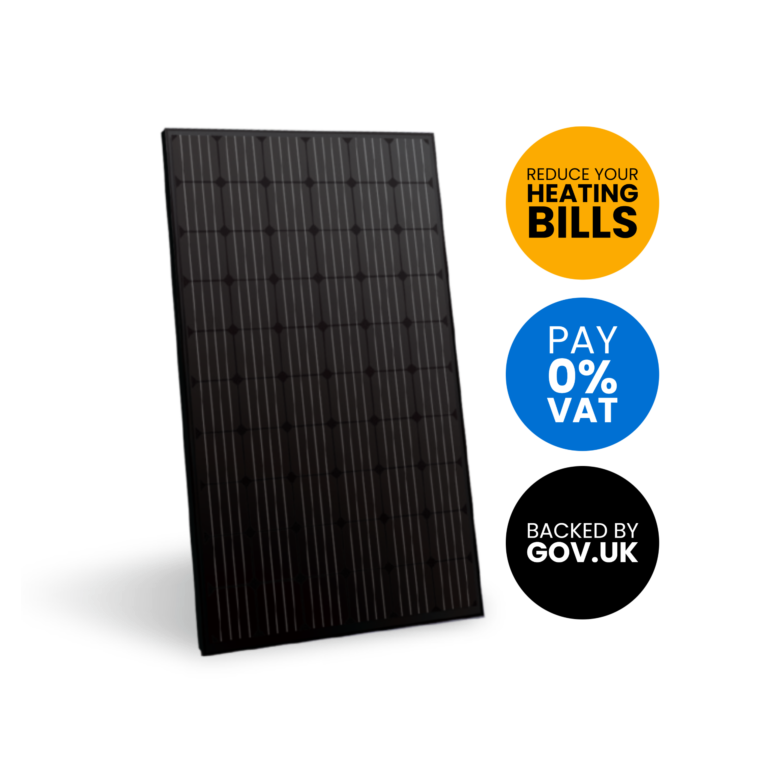
Our Partners:






GOV.UK
Government-funded grants are available to eligible candidates throughout the UK.
Fill out our quick 60 second form to check if you qualify & get started.

Enter Your Details

Book Your Free Survey

Solar Panels Installed

Save On Energy Bills
You don’t need to be receiving benefits!
Government funding means you could be eligible for £1000s
Local Authorities have funding grants available to eligible households to help boost the energy efficiency of their homes. Low-income households (under £31,000) are eligible for grants under the scheme which aims to improve the energy performance certificate (EPC) ratings of low energy efficiency properties (those in bands D-G) through home improvements, including Solar PV, loft insulation and underfloor insulation.
Funding is available to households under the government-backed ECO4 Scheme. Grants for solar panels will help households with low energy efficiency homes who are considered likely to face financial difficulties heating their homes.
The changes to the ECO4 Scheme means that funding is available not just to those who are claiming benefits as was previously the case under ECO3. Under ECO4, 50% of measures will be delivered under LA Flex, meaning more help for those not on benefits, but who are still classed as a ‘low income’ household.
Those who install solar panels could benefit from the Smart Export Guarantee (SEG) which came into effect in 2020 and enables households to receive payments for the surplus energy they export back to the grid. All homeowners with standard solar panel systems are eligible for payments under the SEG.
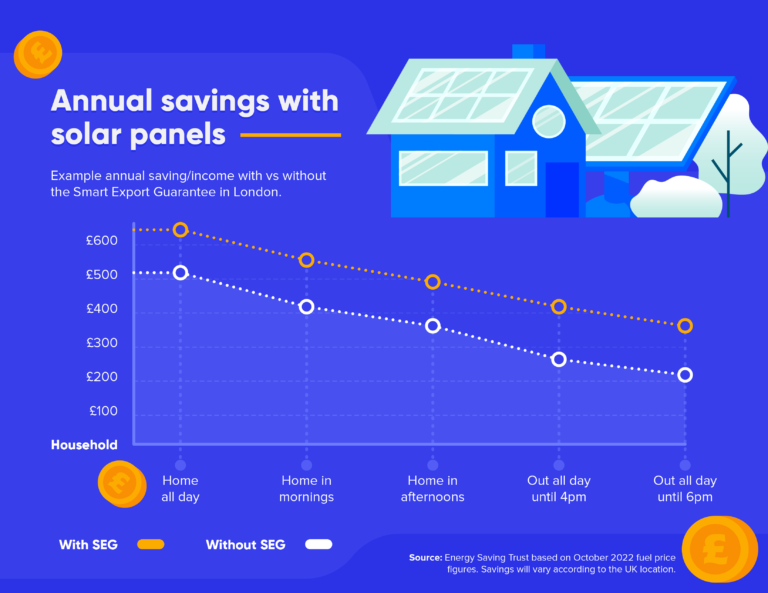
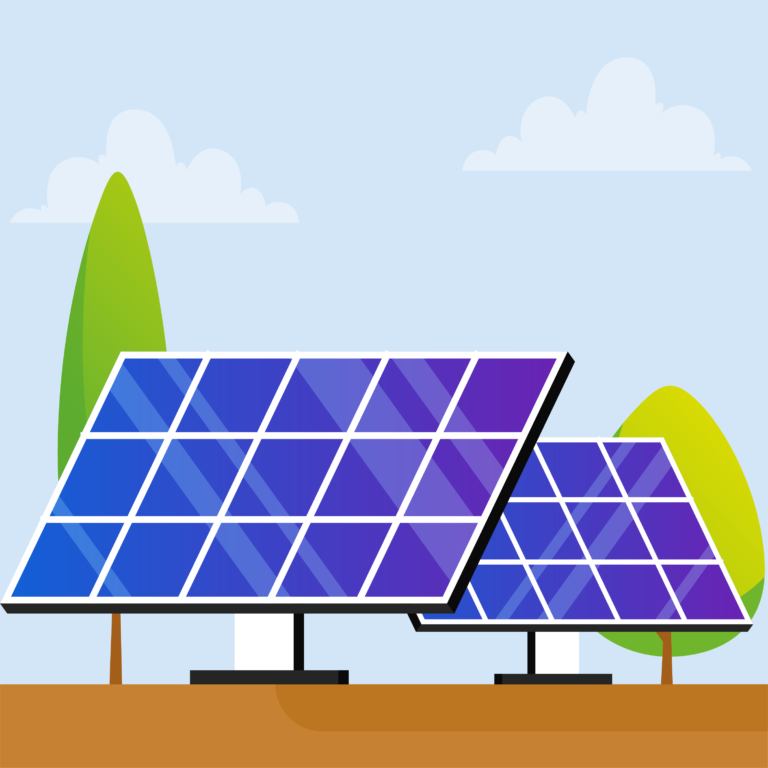
The Energy Company Obligation scheme transitioned from ECO3 to ECO4 in Summer 2022. The new ECO4 scheme allows people to apply to have solar panels installed with the possibility of them being fully-funded.
The Energy Companies Obligations (ECO) scheme is backed by the UK government and obligates the largest energy suppliers – including npower, E.ON and British Gas, SSE, EDF, Scottish Power and others – to help households improve their energy efficiency and reduce their energy bills.
You might not be eligible to get a solar panel grant, or get a grant to cover the full cost of solar installation, but if you opt to pay for it yourself, the solar energy bills savings can very quickly add up to pay for the cost of installation over time.
You don’t need to be receiving benefits!
To be eligible ECO4 funding and receive a solar panel grant, you must receive:
You may also qualify if your household income is below a certain threshold AND you are in receipt of Child benefits. These thresholds vary depending on how many children you have and whether you are a single or two-parent household.
Single-parent households:
Two-parent households:
If you think you may be eligible for the ECO scheme, you can apply through your energy supplier directly or click here to find out more.
The ECO4 scheme is a government initiative that sees funding provided by energy suppliers to households to help them improve the energy efficiency of homes. The scheme is open to all homeowners in the UK regardless of whether they own or rent their property.
Under the scheme, eligible households can receive free or discounted insulation and solar panels. The level of support you receive will depend on your energy supplier and your circumstances.
ECO was first introduced in 2013 and has been updated several times since then. The most recent update, ECO4 differs from ECO3 in a few key areas:
The Smart Export Guarantee (SEG) is a government initiative that provides payments to people who generate their own renewable electricity. It replaced the previous Feed-In Tariff Scheme in 2020.
Under the scheme, eligible households can receive payments for the electricity they generate from renewable sources such as solar panels. The level of payment depends on the type of renewable energy system you have, how much electricity you generate and your energy supplier.
The scheme is open to anyone with solar panels or other eligible renewable energy systems. You will be paid for the surplus electricity you generate and export to the grid.
To be eligible for the Smart Export Guarantee, you must have:
To apply for the scheme, you will need to contact your energy supplier directly who will be able to advise you on the application process or click here to find out more.
With a grant, you can get a full solar system and insulation including:
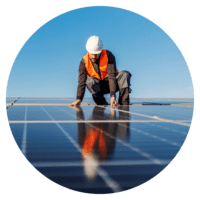
1. Solar Panels
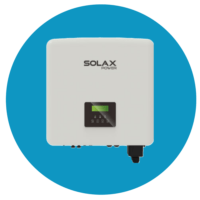
2. Home Solar Battery
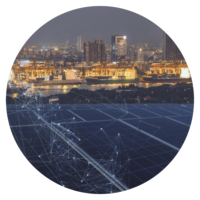
3. Trade Energy for Cash
APPLY ONLINE: Let’s See If You Qualify for a Solar Panel Grant
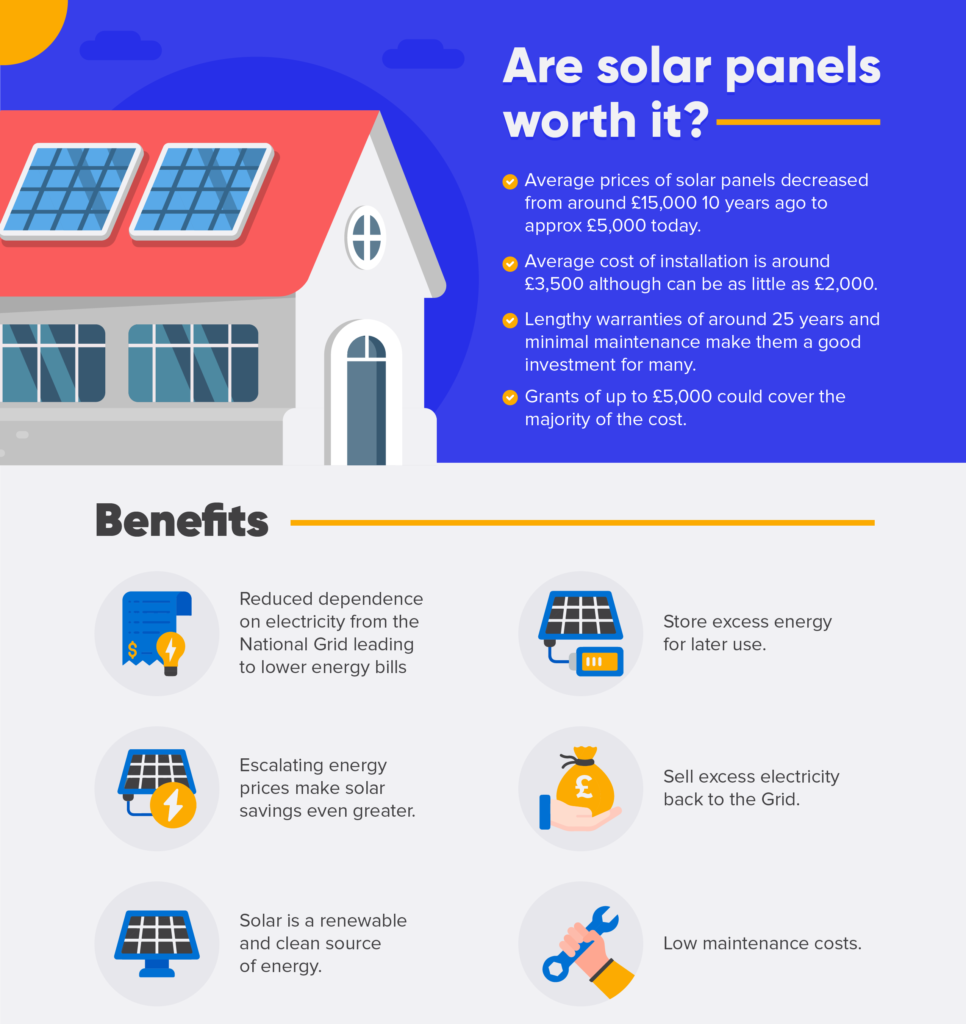
You don’t need to be receiving benefits!
Solar PV panels consist of multiple cells made from semiconducting materials, which when light shines upon them, electricity is created.
The electricity created can be used, stored in a battery, or exported to the grid to receive money from the energy companies as part of the Smart Export Guarantee.
The electricity created can be used, stored in a battery, or exported to the grid to receive money from the energy companies as part of the Smart Export Guarantee.
Why choose solar over traditional energy?
Fossil fuels are rapidly increasing in cost, making them a more costly option for both your pocket and the environment.
Solar is a much greener alternative as it is a renewable form of energy and can be used to provide electricity and hot water for the home.
Did you know…
Solar panels are still able generate electricity on gloomy days. They require light not direct sunlight in order to function. The brighter the light is, the higher their electricity output.
With a focus in the UK on moving away from fossil fuel heating and transitioning to more energy efficient systems, low-carbon heating alternatives are becoming commonplace. Solar panels meet this goal perfectly are a great investment for a property if you have the right space on your roof.
Unfortunately, not all homes are ideal for a solar panel system. To get the most out of solar panels they need to be predominantly south-facing and the roof should be unshaded during the peak period for daylight (roughly 10 am- 4 pm). That said, it is still possible to have east/west facing systems and generate a good 80%+ compared to a south-facing roof. Regardless of the orientation, your roof does need to be in good condition and the space needs to be quite sizeable to accommodate the solar panels, which on average are likely to be around two square metres each. Diagonal roofs are more effective at catching rays than panels on a flat roof.
The majority of heating systems in the home rely on burning fossil fuel or converting electricity into heat. Solar panels are ideal because they generate electricity for the home using daylight. The energy produced comes from a renewable source and can be used to heat and power your home, with the excess able to be stored in batteries, or sold back to the grid under SEG.
The majority of heating systems in the home rely on burning fossil fuel or converting electricity into heat. Solar panels are a great option because they generate electricity for the home using daylight as the source, so are a low-carbon, renewable energy. Not only can the energy produced heat power your home, the excess can be stored in batteries for use later, or can even be sold back to the grid.
Aside from the savings solar households would make by producing their own electricity, it is also possible to get paid for the excess energy you generate. Originally the Feed-in Tariff scheme provided financial incentive by paying for excess electricity from solar. This was closed to new applicants in March 2019, but has been superseded by the Smart Export Guarantee (SEG). The Energy Saving Trust estimates solar homes could get paid up to £125 per year for any excess energy that is generated. It should be noted that SEG tariffs can differ widely between energy suppliers and the amount received for each kilowatt hour (kWh) of electricity generated from solar panels, but not used. It is therefore recommended that you shop around for the best imported electric rates.
Planning permission is not usually required for solar panels. The exceptions are if your property has a flat roof or is a listed building or in a conservation area. In these circumstances, approval might be required from your local authority building control team.
Solar panels that are professionally installed should not make any noise as there are no moving parts within the panels themselves. The inverter, which is usually attached to the side of the property or in a cool place such as a garage or utility room, and converts the current from DC to AC, may make some noise but is likely to be a quiet humming noise that is unlikely to be particularly noticeable. Any signs of loud noise would suggest that some maintenance is required. You should take help from an expert solar panel installer in this case.
The scheme aims to help low income households improve their home energy efficiency and any grants are non-repayable. Those eligible for a grant will either get a grant towards the installation of a solar PV system in their home. In some cases a contribution may be required towards the cost of the installation, but this will be made clear from the outset, following a free assessment at your home.
For residential properties, the installation of solar panels should take 1 day, though slightly larger properties with larger panels might take up to 2 days. Commercial installations can take longer, depending on the site and specific requirements.
It is worth noting that it doesn’t have to be sunny to generate electricity and that electricity will still be produced on dull days, admittedly at a lower rate. When you are not producing enough electricity to meet your demand, your home just draws electricity from the grid in the normal way, as you did prior to solar being installed.
Solar panels should be expected to last between 20-25 years, but some manufacturers suggest in some instances this could be as much as 40 years. Over time efficiency can fall (reducing by about 15% over their lifetime) and inverters may need to be replaced, but in the main, the life and performance of solar panels is a lengthy one.
No, the Green Deal was launched in 2013 but was withdrawn in 2015 after it failed to take off. The government has since reintroduced a similar scheme called the Energy Company Obligation (ECO).
Find out how much your home could save with free funding and by going green.
Saving Your Pocket & The Planet
Low Maintenance & Servicing Costs
Enquire today and find out how much in Government funding you could get…
See how much you could save
*Annual saving/income with the Smart Export Guarantee in for a property in London where the householder is home all day (according to the Energy Saving Trust based on April 2024 fuel prices)
Solar Grants UK is a trading style of Lead Pronto Ltd, a Company registered in England & Wales, company number 11563815.
£10,000 in Free Grants to Install Solar in Your Home